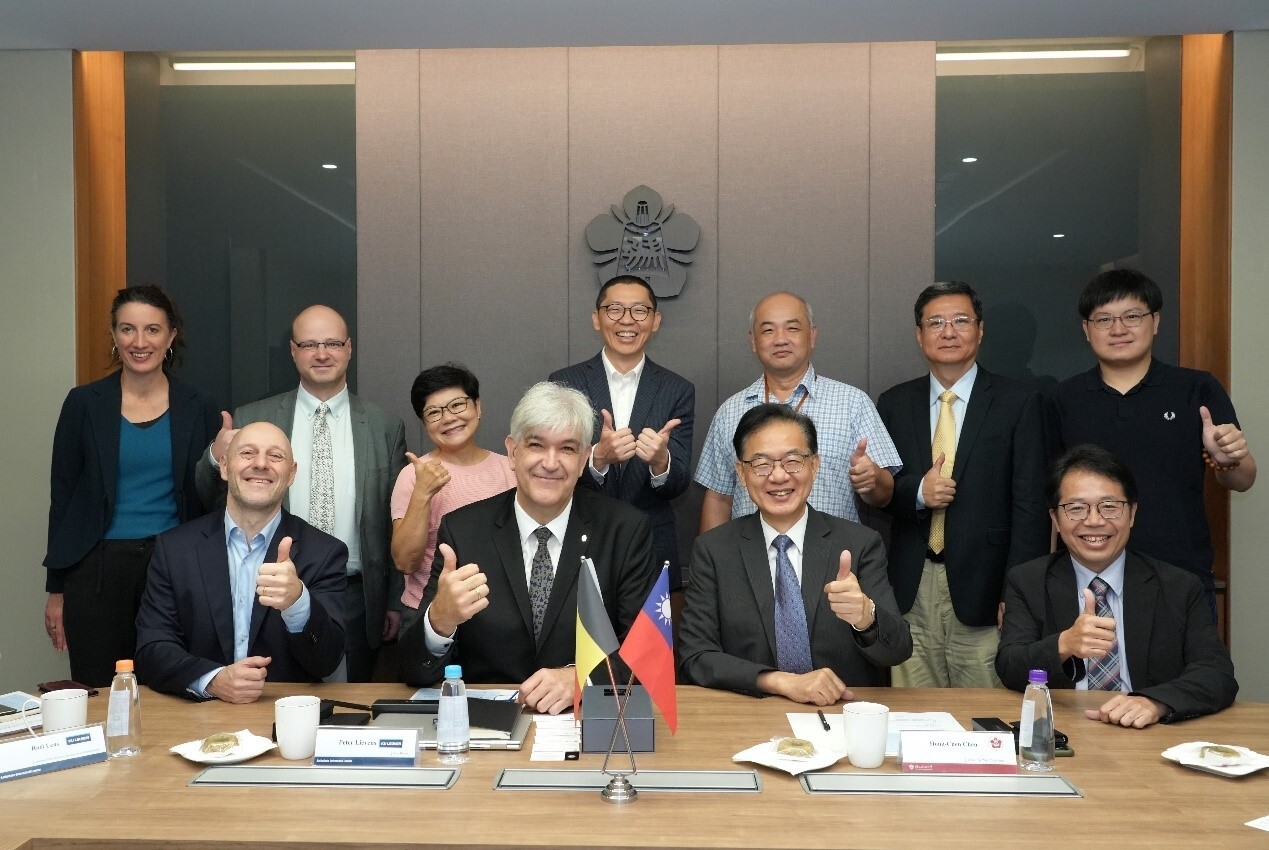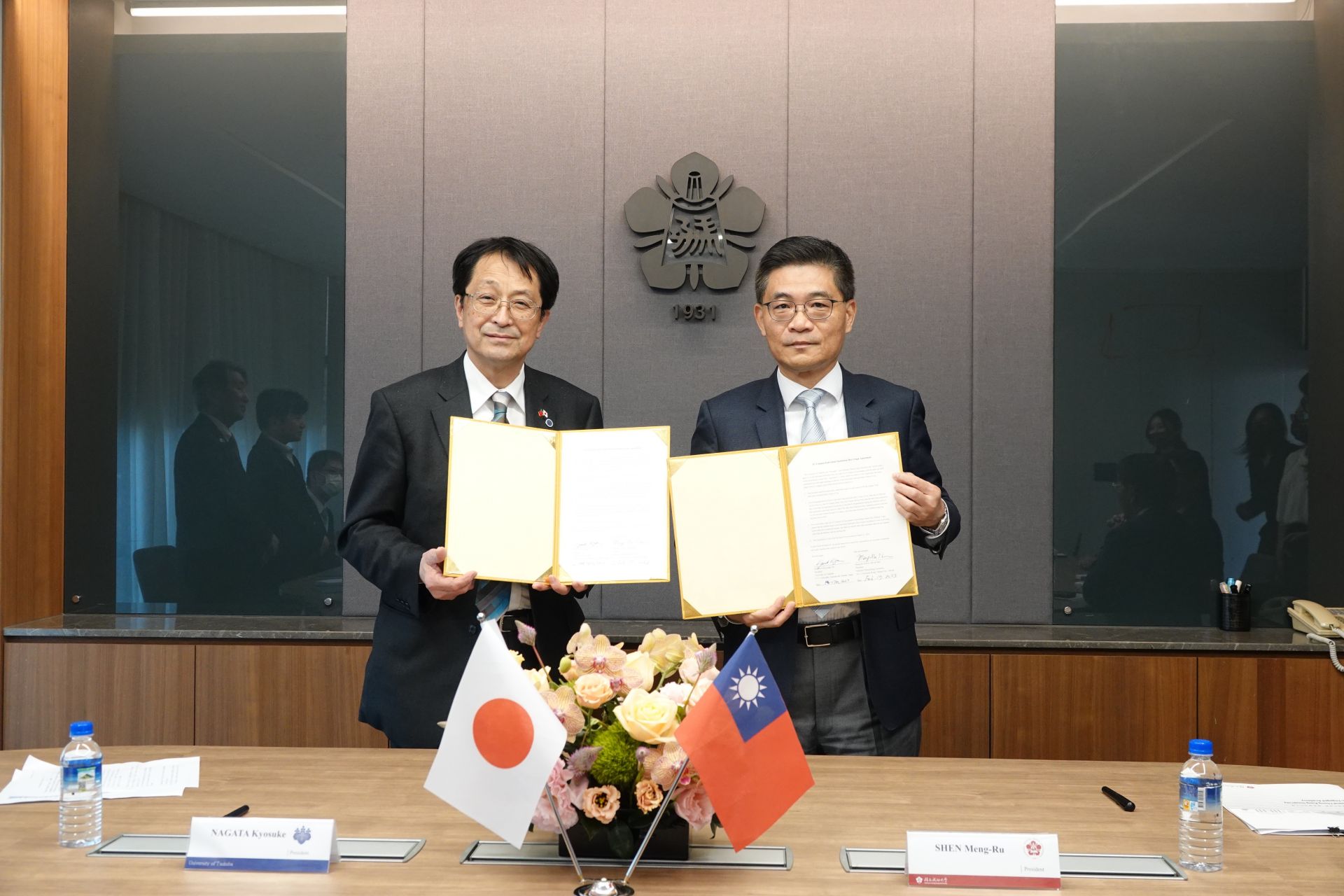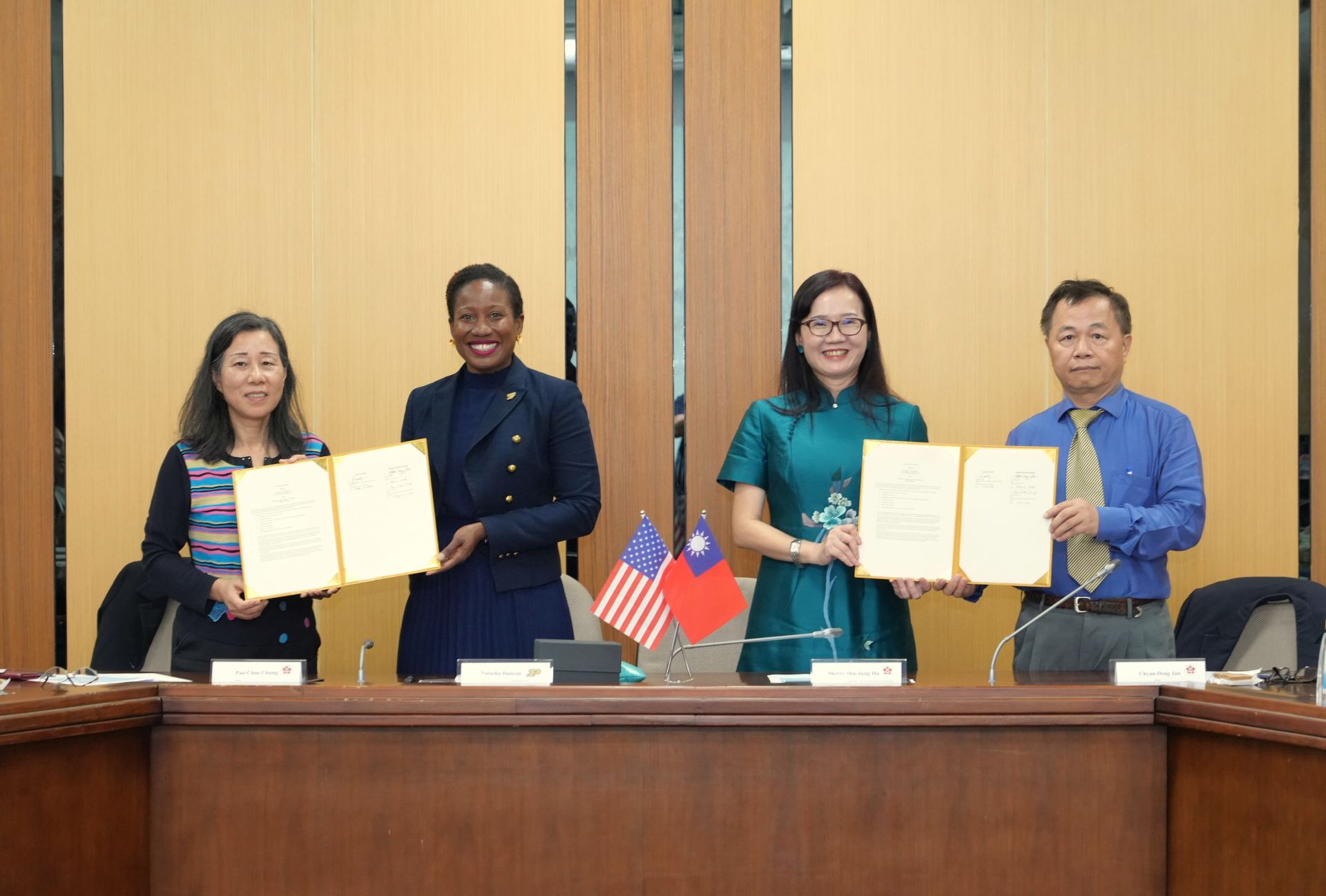Sharing Growth and Honor with Alma Mater: Alumni as the Strong Force Behind NCKU's Sustainable Future
National Cheng Kung University (NCKU) celebrates its 94th anniversary this year. Over the decades, the university has grown and flourished, nurturing more than 220,000 outstanding alumni. Alumni remain one of NCKU’s most valuable asset. To express gratitude and strengthen ties, President Meng-Ru Shen hosted the first “A Date with Alumni” university gathering event on November 9, together with the university’s administrative team. During the event, President Shen shared NCKU’s recent achievements in student support, green campus initiatives, campus planning, AI research, and international collaboration. He encouraged alumni to continue caring for and supporting their alma mater, becoming a solid force that drives NCKU’s progress and a lasting foundation for its sustainable prosperity.
The alumni gathering, themed “Reuniting with NCKU”, took place at 3:30 p.m. in the Cheng-Kung Hall on the Kuang-Fu Campus. President Shen opened the event with heartfelt remarks, saying that the greatest strength behind NCKU’s success comes from the strong support of its alumni. He shared examples of recent alumni contributions. Peter Chen, Chairman of Qisda and President of the NCKU Global Alumni Association, has long been involved in advancing the university’s international affairs and institutional development. The four recipients of this year’s Distinguished Alumni Award, Shin-Kun Peng, Jason Ta-Kang Ma, Shu-Tzu Chen, and Ching-Lai Lu, have also continued to bring energy to NCKU through their achievements in academia, technology, national finance, and support for university affairs. These examples reflect only a small part of NCKU’s vast alumni network, whose members consistently give back to their alma mater and help drive the university’s continuous growth.
NCKU’s first president, Wakatsuki Michitaka, once set forth two guiding visions for the university: to foster social engagement, and to nurture students with calm minds, open hearts, and skillful hands. He also emphasized that every step forward the university takes should contribute to the nation’s progress. Over the past 94 years, NCKU has fulfilled this mission by serving as a vital academic and talent-training force for Taiwan. The university’s achievements have earned deep trust and affection from the Tainan community, with public favorability consistently ranging between 88% and 90%. Today, NCKU stands as a leading academic brand, one that is highly regarded by employers, respected among university leaders, and recognized for the excellence of its medical system. Internationally, NCKU’s academic standing has continued to rise, with its ranking progress in the past three years doubling that of the previous eight.
Looking to the future, President Shen outlined three key directions for NCKU. First, the university will strengthen student-centered education, bringing focus on humanities, aesthetics, cross-disciplinary learning, and life education, besides strong professional training. The goal is to nurture students with empathy and teamwork skills. Second, NCKU will prepare for the challenges of the AI era. The university plans to build stronger data systems, computing power, cybersecurity, and smart applications to support both teaching and research. Third, NCKU aims to build a solid foundation for its decade. It will integrate research capacity with industry needs and focus on key national issues, such as energy, climate resilience, cybersecurity, and technological independence. NCKU hopes to continue serving as an important academic engine for Taiwan.
After the president’s remarks, Liang-Yi Hung, Vice President for Student Affairs, spoke about student support services; Jian-Hung Wu, Vice President for General Affairs, introduced recent achievements in building a greener campus; Ping-Sheng Wu, Senior Vice President, explained the overall campus development plan; Sun-Yuan Hsieh, Vice President for International Affairs, reported on AI-related projects; Shyy-Woei Chang, Executive Vice President, presented progress in international cooperation.
Office of Student Affairs: Turning Support into Strength
Liang-Yi Hung, Vice President for Student Affairs, shared that NCKU follows the vision of “mutual growth and happiness.” The university promotes whole-person education and a friendly campus, helping students explore their interests and plan their future careers in a safe and supportive environment.
To help first-year students adjust, NCKU created the Office of the First-Year Student. It also offers campus experience activities so students can learn about resources and find their learning direction. For campus safety and inclusiveness, the university provides night escort services, gender-friendly restrooms, and a campus safety center. Dormitories have been renovated, and the new Dong-Ning Dorm has opened, keeping bed availability above 95%. For students with financial needs, the university offers living allowances, tuition support programs, housing subsidies, and free meal plans. In mental health care, NCKU added night counseling hours and mental health leave in 2024. The counselor-to-student ratio is now 1:886, better than the MOE standard of 1:900.
The lively NCKU campus is home to 179 student clubs. This year, President Shen promoted the “NCKU Sports Year.” During the 94th anniversary, more than 1,600 students and staff formed 80 teams to join the mixed relay race, strengthening the sense of community through sports. Looking ahead, the university will continue to support career exploration and cross-disciplinary learning. Through industry connections, alumni talks, career platforms, and internship programs, NCKU helps students move smoothly from campus to the workplace.
Green Campus: Banyan of A Hundred Years and Light of Four Seasons
Jian-Hung Wu, Vice President for General Affairs, an NCKU alumnus, shared recent efforts to beautify the campus. NCKU has long been known for its green landscape and is the popular location choice for leisure by Tainan citizens, and the university now aims to further shape the campus into an inviting open park-like space. The school is redesigning tree planting plans and adding trees that bloom in different seasons, golden rain trees in winter, Sweet Gum in autumn, and flame trees in summer. A Christmas tree display also will brighten the campus this winter.
Along with planting new flowers and trees, the university also protects its century-old banyan. Last year, NCKU invited professional arborists and horticulture experts to prune the famous landmark banyan tree. They also designed teaching materials to explain the purpose and methods of pruning to students and the public. After a typhoon in July, the old banyan remained strong. Wu said NCKU hopes the campus will feel like a peaceful park, where everyone can slow down, enjoy the scenery, and feel happy. He warmly welcomed alumni to return and see how the campus has grown even more beautiful.
NCKU’s Campus Plan: Supporting City Transformation and National Development
Ping-Sheng Wu, Senior Vice President, an alumnus from the Department of Architecture, presented the university’s campus development plan. He explained that NCKU follows the idea of “carrying values, driving innovation.” The university aims to build a knowledge hub that supports city transformation and national growth. Since its founding, NCKU has played a key role in training talent for industries in southern Taiwan. When it was established as the Tainan Technical College, the school focused on sugar, salt, machinery, chemistry, and civil engineering. Today, 94 years later, NCKU drives major new developments, serving as the center of the governmental program “Southern Taiwan Silicon Valley”, the semiconductor S-corridor that links science and industrial parks across Tainan, Chiayi, Kaohsiung, and Pingtung. NCKU will support this growth through research, talent training, land planning, and connections with industry.
Main Campus: A Shared Path for Culture, Talent, and Smart Development
On the main campus, NCKU is shaping a space that brings together smart technology and the humanities. When the railway underground project finishes in 2026, the Kuang-Fu Campus, Tainan Park, and the station area will connect more smoothly, forming a “talent flow corridor.” The university’s Arts Center, NCKU Museum, and many humanities programs will help create a cultural public space. Every year, NCKU holds nearly 50 exhibitions, talks, and performances, with over 10,000 participants. These activities support arts education and cultural exchange in the city.
An-Nan Campus: An Ecological Ark for Sustainability and Net-Zero Goals
The An-Nan Campus sits near the Tainan Technology Industrial Park and Taijiang National Park. It is home to NCKU’s Tanan Hydraulics Laboratory and the Marine Biology & Cetacean Research Center. The campus will focus on sustainability and net-zero goals. Future plans include an educational center for cetacean and marine biology, a micro-grid, an ecological detention pool, and a habitat for rare bird species. The An-Nan Campus will become an important base for environmental education and climate action within the university.
Kuei-Jen Campus: Advanced Engineering and Technology Testing
The Kuei-Jen Campus focuses on “heritage × innovation.” It hosts the Aerospace Science and Technology Research Center, the Tainan Lab of the National Center for Research on Earthquake Engineering, and the Architecture and Building Research Institute under the Ministry of the Interior. The campus will integrate advanced engineering and aerospace technologies to support national high-tech industries. It will also serve as a cross-disciplinary testing ground, helping research results move into real-world use and strengthening talent cultivation.
Shalun Campus: Health, Medical Care, and Digital Governance
The Shalun Campus aims to develop a smart healthcare cluster and create new digital governance systems. The project begins with a new hospital that will serve local needs and develop advanced medical services. The campus will also connect with the high-tech corridor in southern Taiwan, building a resilient medical ecosystem that can respond to both everyday needs and emergency situations.
AI Strategy and Current Development
Sun-Yuan Hsieh, Vice President for International Affairs said that AI is already part of everyday work at NCKU. The university is pushing forward with its AI strategy, aiming to become a leading university in AI research and development. NCKU is building databases, improving digital privacy and computing power, and strengthening cybersecurity. It is also promoting AI in teaching and administration to build a smart campus.
The Computer and Network Center manages the AI system platform and data governance. It helps teachers and researchers use AI tools in their work. NCKU also set up a task force for digital governance for school affairs to develop AI applications for school affairs applications. Examples include a smart Q&A system for the Personnel Office, smart search tools for the Office of International Affairs, AI teaching support for the Office of Academic Affairs, AI tools for student advisors, and smart-campus projects for the Office of General Affairs. The university also hosts forums on AI and higher education to build AI skills for both faculty and students.
In teaching, NCKU promotes AI-enhanced courses, an AI innovation classroom, and projects that integrate generative AI into lesson design. In research, the university highlights the link between technology and humanity care. AI research makes up 31% of NCKU’s cross-disciplinary sustainability projects and 42% of its Frontier Research Projects for sustainable advancement. Recent achievements include the world’s first Human-AI Interaction (HAI) detection system, which improves the identification of fake multimedia content, and “QWalk,” a wearable system integrating Wi-Fi that detects gait and multi-modal information, which clinically helps Parkinson’s patients improve movement control.
NCKU also established the AI Service Center and AI Service Hub to connect research teams on campus with companies and start-ups in the industry. These groups work together to identify industry AI needs, support technology adoption, and train new talent. The university also partners with the Ministry of Economic Affairs on an AI talent program to develop practical, cross-disciplinary skills and speed up industrial innovation transformation.
Strengthening Academic Communication and Global Competitiveness
Shyy-Woei Chang, Executive Vice President, shared NCKU’s progress in global reputation, research strategy, and international education. These achievements show the university’s steady move toward becoming a world-class institution. In recent years, NCKU has built strong connections with top universities and research centers, expanding international cooperation and focusing on major global issues to bring forward the strength for academia and talent cultivation. In the QS World University Rankings, the university steadily moved up and ranks at 150. In interdisciplinary science rankings, NCKU ranks first in Taiwan and 43rd worldwide for research investment. In the Times Higher Education Impact Rankings, NCKU has ranked first in Taiwan for five consecutive years (2020-2024). In CommonWealth Magazine’s 2025 USR University Survey, NCKU earned a full score among public universities, achieving a two-time championship. In Global Views’ Best Universities in Taiwan list, NCKU ranks 1st in internationalization.
To continue building global reputation, the school's strategy aims to link with global universities and institutions, build ties with top companies and deepen diverse international collaborations. NCKU follows a three-stage strategy for this goal. First, it strengthens principal-investigator-to-principal-investigator (PI-to-PI) partnerships with top international institutions, boosting research output and talent exchange. Second, it expands cross-disciplinary teamwork with global partners, including joint degree programs, co-appointed faculty, and industry collaboration with universities such as the University of Tsukuba, Kyoto University, and Université Grenoble Alpes. Third, it focuses on key global issues. NCKU works with well-known companies, both domestically or globally located, on research innovation and industry collaboration, and it supports overseas students in building stronger career skills. NCKU will continue to deepen its international presence and cultivate world-class talent, contributing to Taiwan’s higher-education influence.
NCKU was founded in 1931, and its alumni around the world form a strong global network. The university has 50 alumni associations worldwide.
The earliest was the Alumni Association of Hong Kong, founded in 1960. The largest overseas group is the Alumni Association of Malaysia, established in 1972, which helps with student recruitment every year. The newest is the Alumni Association at Austin, founded in 2024. When alumni groups invite the president to their annual events, the president would personally join whenever possible, and would make sure to send video greetings if the schedule does not permit.
Provider: NCKU News Center
Date: 2025-11-25
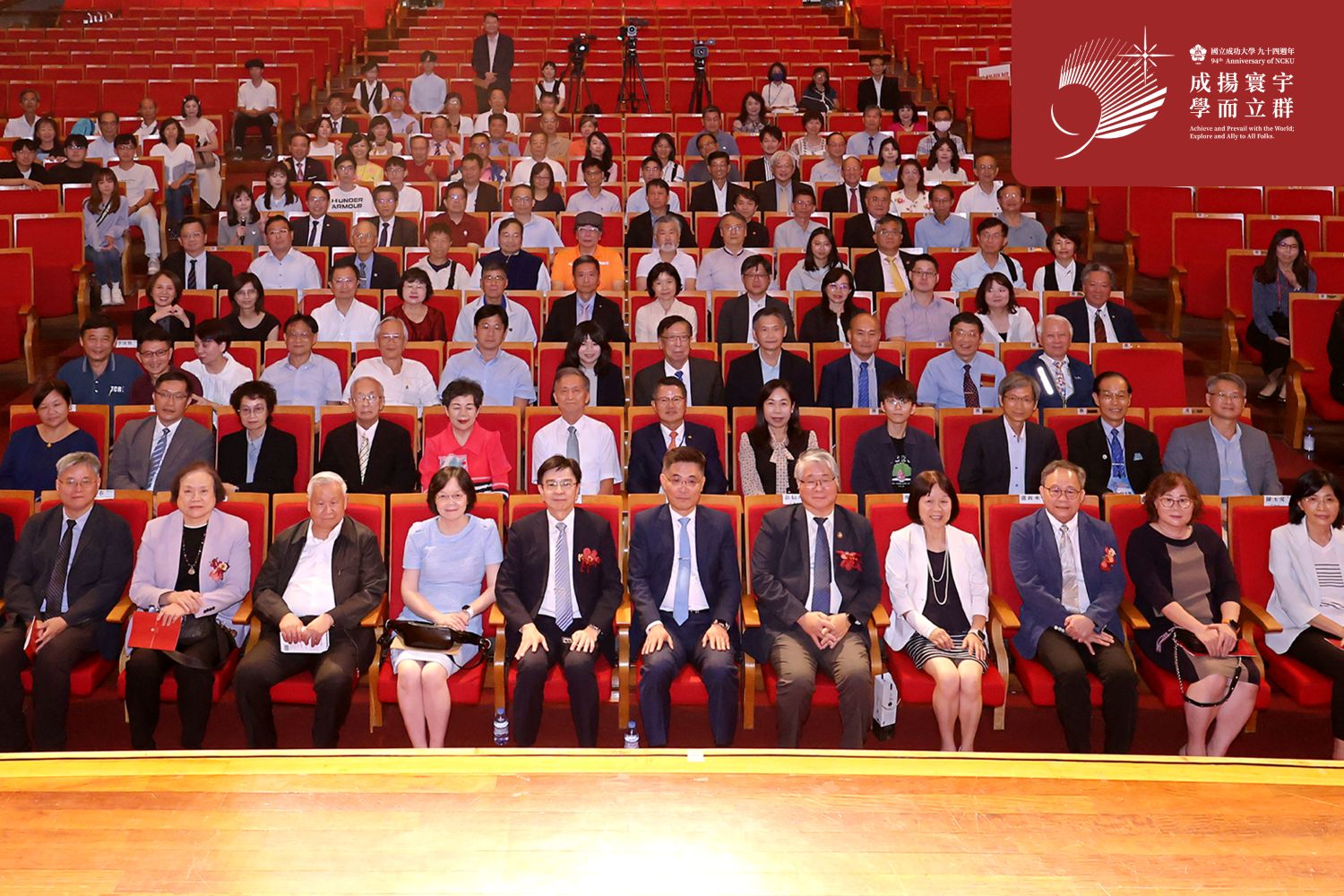
NCKU hosts the first “A Date with Alumni” university gathering event to share NCKU’s recent achievements in various areas.
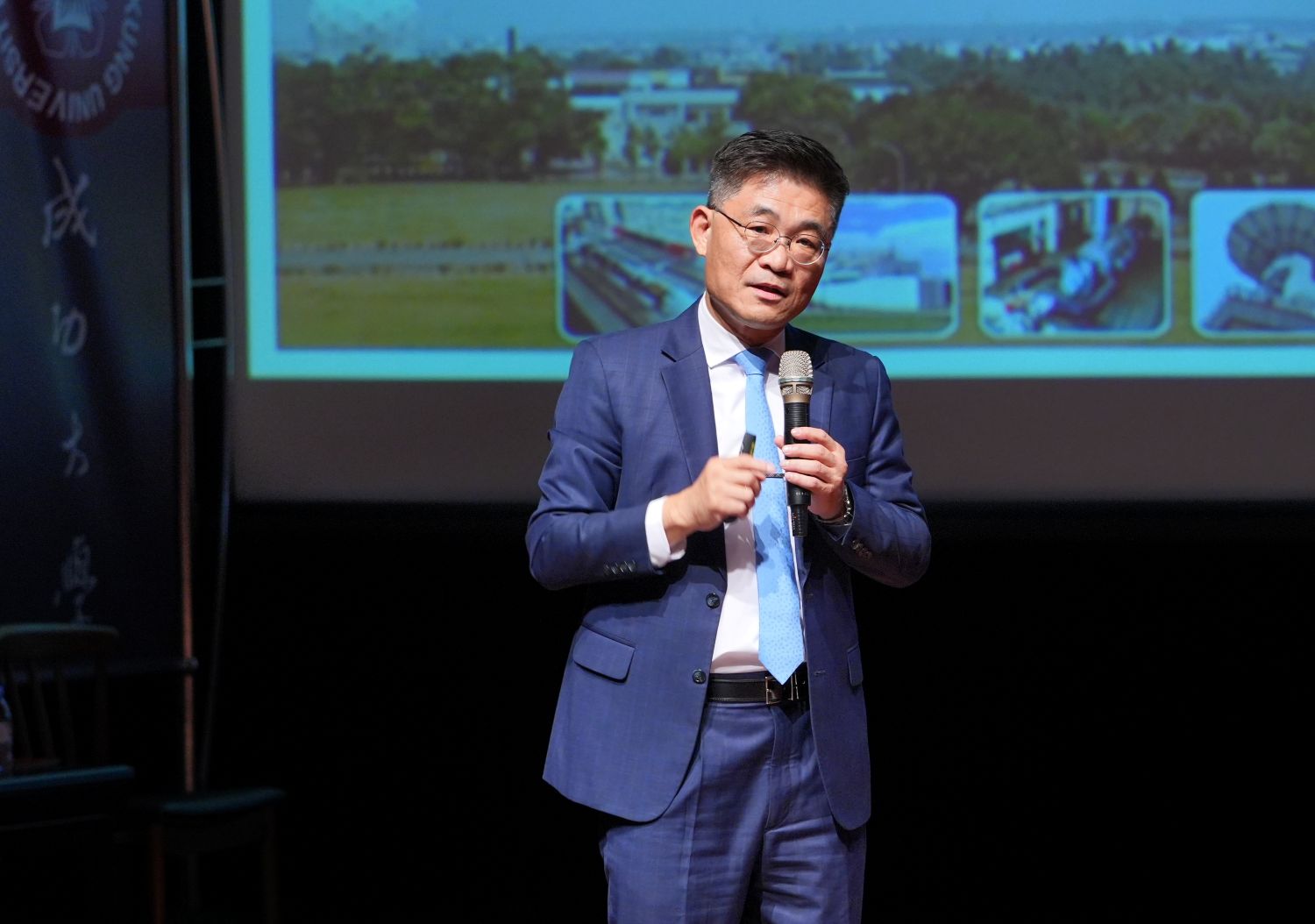
NCKU President Meng-Ru Shen says that the greatest strength behind NCKU’s success comes from the strong support of its alumni.
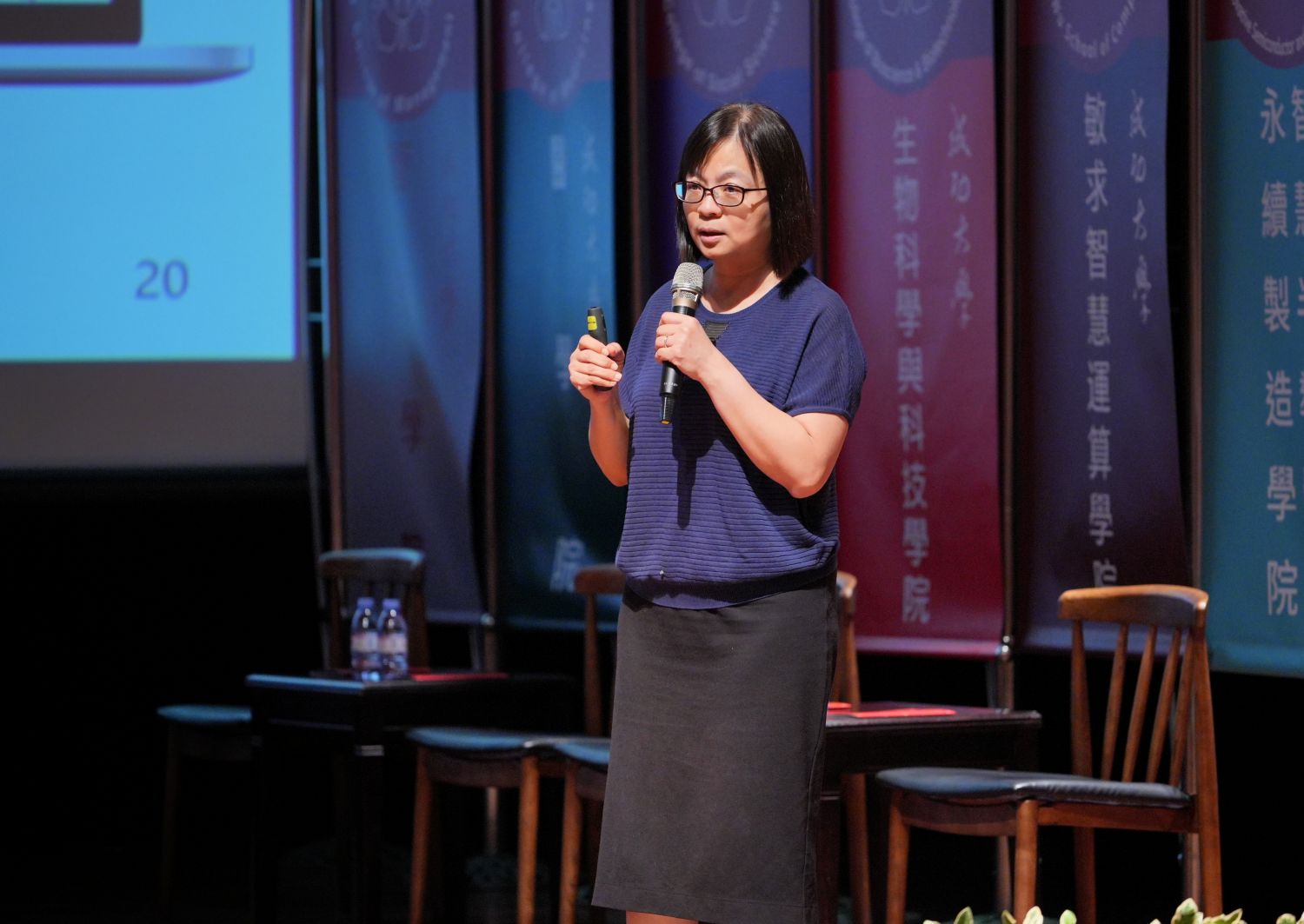
Liang-Yi Hung, Vice President for Student Affairs, speaks about student support services.
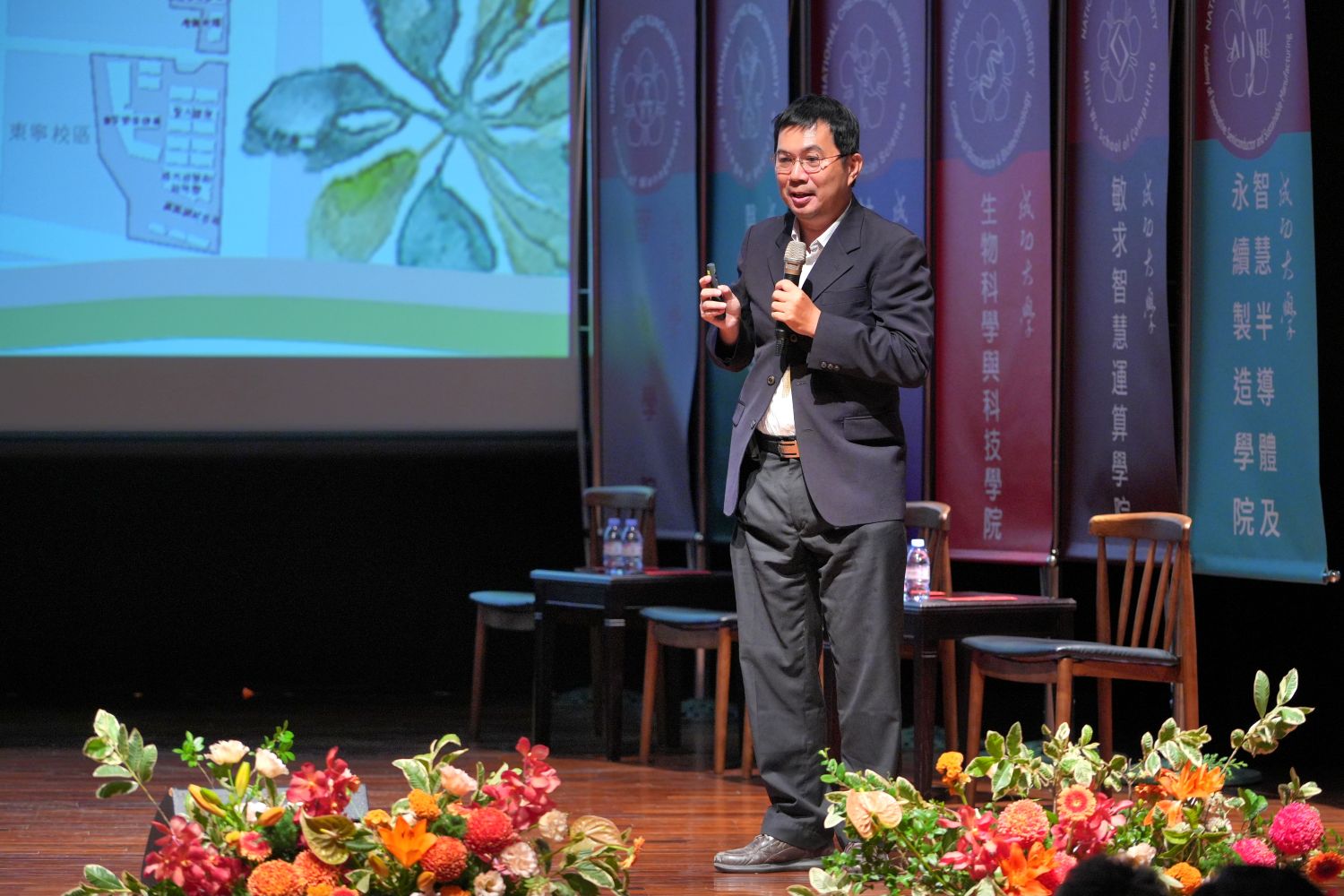
Jian-Hung Wu, Vice President for General Affairs, introduces the campus’s seasonal landscape design.
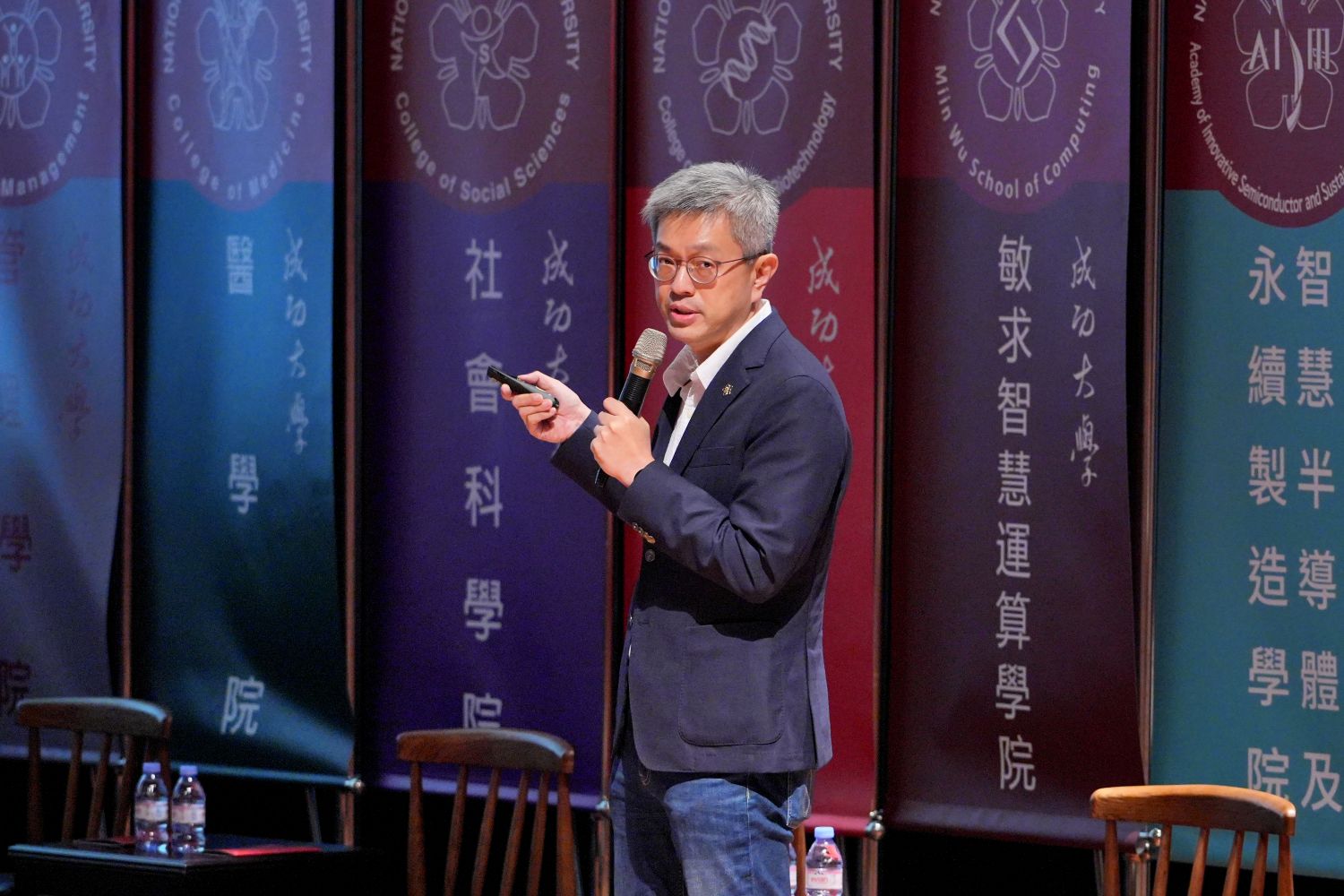
Ping-Sheng Wu, Senior Vice President, explains the overall campus development plan.
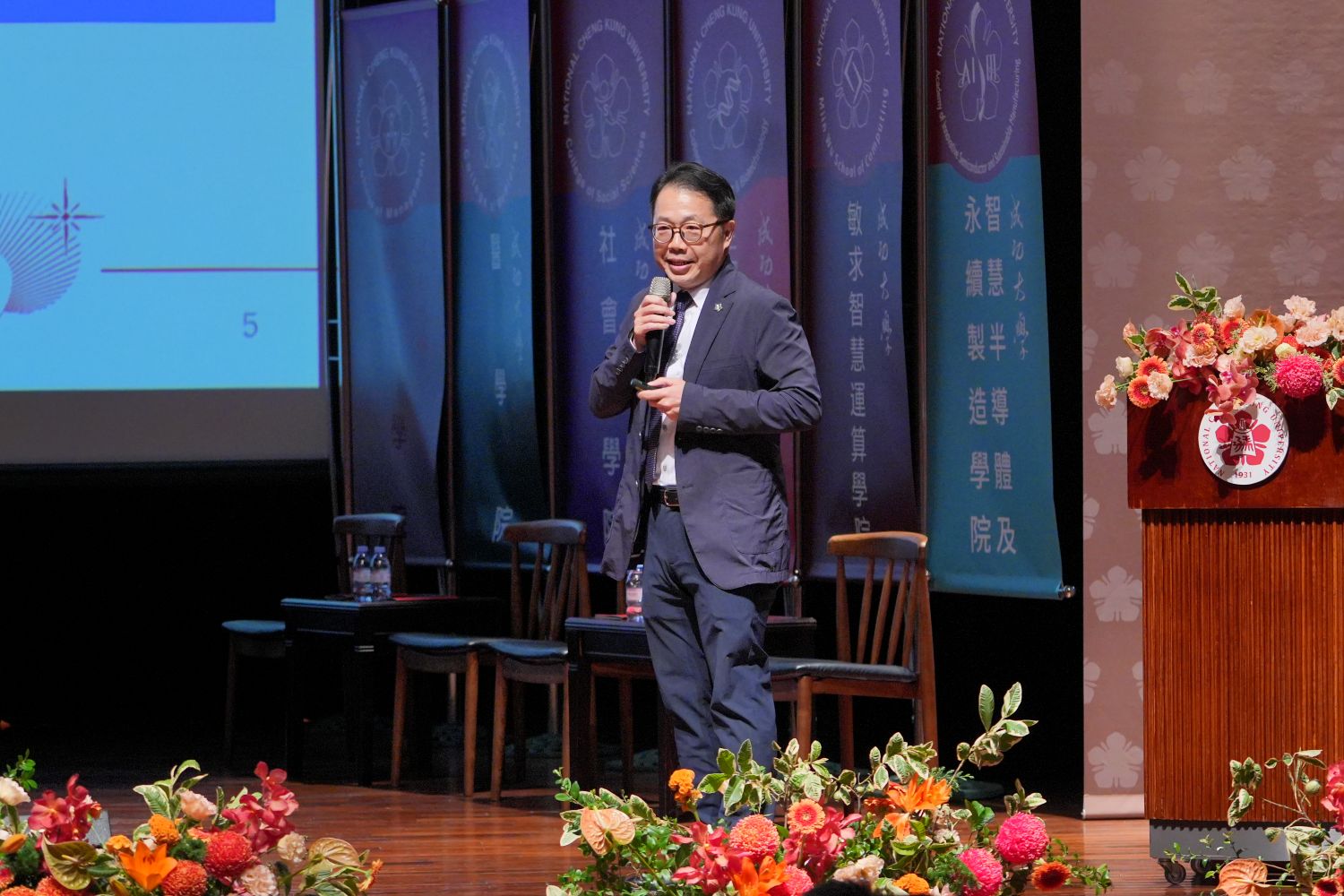
Sun-Yuan Hsieh, Vice President for International Affairs, reports on AI-related projects.
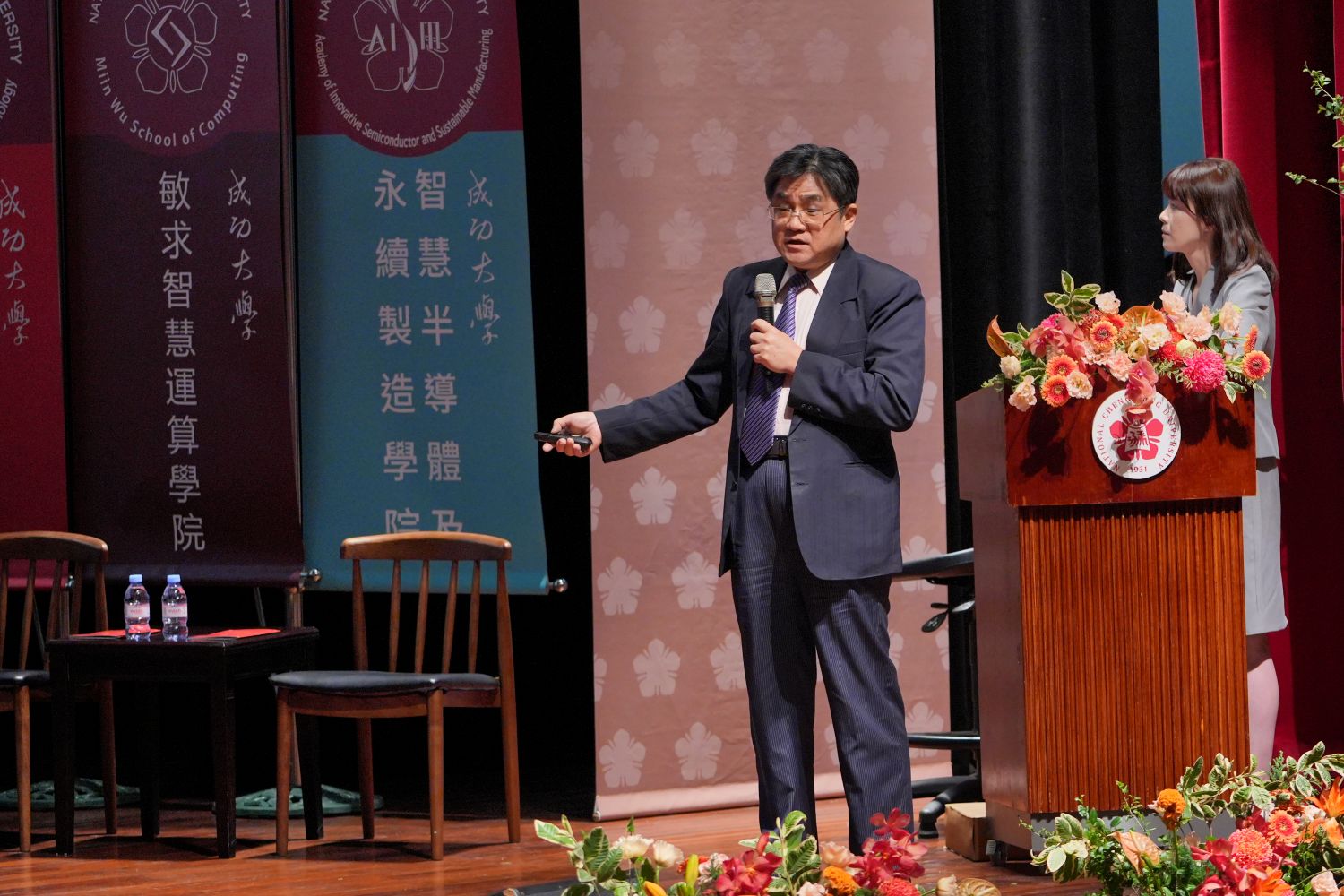
Shyy-Woei Chang, Executive Vice President, presents progress in international cooperation and competitiveness.







